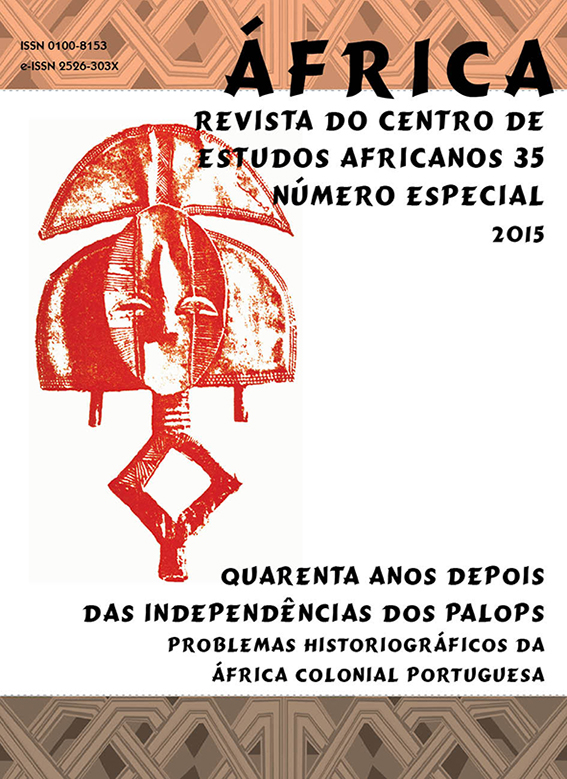Foreign invasions and the formation of the State in southern Mozambique
DOI:
https://doi.org/10.11606/issn.2526-303X.v0i35p19-55Keywords:
Southern Mozambique. National construction. Tsonga–social stratification. Bureaucratisation of taxesAbstract
With a focus on southern Mozambique, this article proposes to examine the process of nation-building and the modernization implicit within it. It begins with questioning the tendency of a certain European historiography to order the African world in its own image, exemplified by the construction of an inaccurate historical identity – “Tsonga” – under a national ideology. Next, the article attempts to establish a relationship between ethnic identity and social conditions, especially considering the first and part of the second half of the nineteenth century, raising some hypotheses. In the first place, this region has been historically characterized by the overlapping coexistence of two economic forms: the foreign-oriented trade and circulation, and domestic forms of reproduction and redistribution. Secondly, it would be possible to suggest that the processes of differentiation and social stratification, derived from this coexistence, predate the occupation of the Portuguese (1895), and therefore were not instigated by it. Third, from the process that we will label “bureaucratization of taxes”, initiated after the effective occupation by the Portuguese colonial administration, these processes of differentiation and social stratification would become processes of social and political exclusionDownloads
Download data is not yet available.
Downloads
Published
2015-02-16
Issue
Section
Artigos
License
Copyright (c) 2017 Africa

This work is licensed under a Creative Commons Attribution-NonCommercial-ShareAlike 4.0 International License.
A reprodução de qualquer dado, mesmo em resumo, de matéria contida nesta publicação, só será permitida com a citação do nome, número e o ano desta revista.How to Cite
Foreign invasions and the formation of the State in southern Mozambique. África, [S. l.], n. 35, p. 19–55, 2015. DOI: 10.11606/issn.2526-303X.v0i35p19-55. Disponível em: https://www.journals.usp.br/africa/article/view/126693.. Acesso em: 20 may. 2024.





